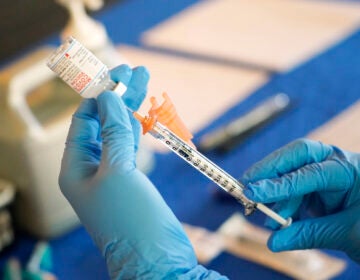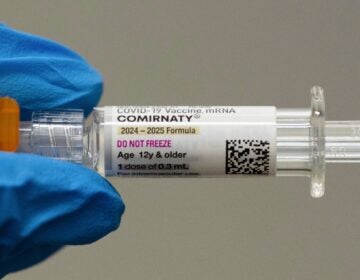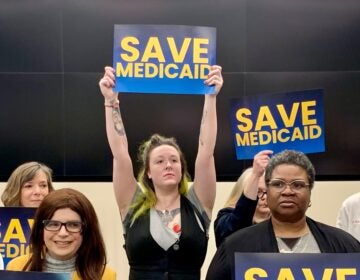‘A prescription we’ve written for every Delawarean’: Gov. Meyer’s order lets virtually all residents get updated COVID-19 vaccine
The governor’s move aims to override the FDA’s action to restrict shots to people 65 or older and others with serious health issues.
Listen 1:45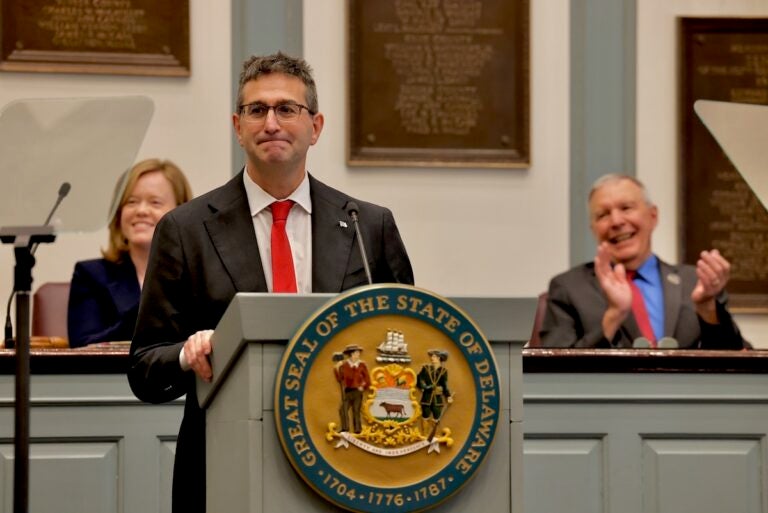
Gov. Meyer calls his order "a prescription we've written for every Delawarean." (Emma Lee/WHYY)
What are journalists missing from the state of Delaware? What would you most like WHYY News to cover? Let us know.
With the Trump administration appearing to limit who is eligible for updated COVID-19 vaccines, Delaware Gov. Matt Meyer has issued an order that lets virtually anybody who wants the shot to get one.
Meyer, in conjunction with the state Division of Public Health, also called on the state Board of Pharmacy, which meets this week, to confirm the order. That way pharmacists can have extra assurance that they won’t face any repercussions for administering the shots, Meyer said.
Updated COVID-19 vaccines, designed to protect people from an expected surge in the late fall and winter, are now available.
Meyer’s so-called ‘’standing order” permits pharmacists to vaccinate anyone who wants a shot as long as they meet criteria based on recommendations from the American Academy of Pediatrics, American Academy of Family Physicians or American College of Obstetrics and Gynecology.
“The standing order is effectively a prescription that we’ve written for every Delawarean,” Meyer told WHYY News.
“Among our responsibilities is saving lives and protecting communities. And when science tells us we have these incredible medicines that sometimes took generations of some of the smartest human beings to develop, we should use that to save lives. And I want Delawareans to know that we are committed to making sure every resident has access to safe, effective and tested vaccines.”

The governor’s action is a response to the U.S. Food and Drug Administration’s announcement on Aug. 27 that it was restricting automatic access to the new COVID-19 shots to people 65 or older, and younger people with health problems such as weakened immune systems, asthma and diabetes.
“The purpose of this document is to ensure ease of access to COVID-19 vaccines for Delawareans seeking to be vaccinated,” Meyer’s order says. “While routine COVID-19 vaccination is now recommended for adults aged 65 and older, individuals under 65 may still benefit from vaccination, based on individual characteristics including underlying health conditions, risk of exposure, risk of developing complications or dying if infected, and personal preference and values.”
Previously, the FDA permitted anyone older than 6 months to get the shots without a prescription. But the FDA, under new Department of Health and Human Services Secretary Robert F. Kennedy Jr., a vociferous vaccine skeptic, has reversed course.
“The emergency use authorizations for COVID vaccines, once used to justify broad mandates on the general public during the Biden administration, are now rescinded,” Kennedy posted on X after the FDA’s action.
Kennedy has since said that anybody who wants the COVID-19 vaccine can get it after consulting with their medical provider.
In June, Kennedy also removed all 17 members of the U.S. Centers for Disease Control and Prevention’s Advisory Committee on Immunization Practices. Many of his replacements have expressed skepticism over the efficacy of vaccines.
The panel, which makes recommendations on vaccines such as the one for COVID-19, meets this week. Insurance companies must cover the shots it recommends.
But no matter what happens at the federal level, Meyer said his constituents who want the COVID-19 vaccine need not worry.
Delaware has joined a coalition of nearby states, including New Jersey, New York and Massachusetts, that is issuing independent, evidence-based vaccine recommendations “according to science, not according to politics,” Meyer said.
Meyer’s order followed assurances this week by Delaware Insurance Commissioner Trinidad Navarro that several health carehealthcare insurers in the state “have committed to continuing to provide their current level of vaccine coverage to policyholders.”
Navarro said many residents have reached out to his office with concerns that coverage for vaccines would be removed, and he promised to work with insurers to ensure that vaccine coverage is not diminished.
“Vaccines save lives,” Navarro said. “They save money, preventing costly diseases and conditions, keeping insurance and care affordable. They save health care capacity, a critical resource to retain as we face provider shortages. But again, and most importantly, they save lives.”
‘Making these decisions based on actual data and not the politics’
Jennifer Horney, founding chair of the University of Delaware’s Department of Epidemiology, said it’s critical for people to have ease of access to the vaccine and for insurers to cover the cost.
Horney said that in 2024, with the CDC declaring the pandemic over and the coronavirus in the endemic stage, about 25% of eligible people got the vaccine.
“I think that people should be able to assess their risk,” the professor said. “Maybe they live with a family member who has a chronic illness or is immuno-compromised. Maybe they don’t particularly have a risk, but they’re a caregiver for someone who does.
“And so those 25% of people should be able to make the decision that they’d like to obtain that vaccine and they should be able to obtain it at no cost.”

She said Meyer’s move is particularly important because of the uncertainty at the federal level and the questions swirling around the CDC advisory panel.
“All the members of that committee, who were charged with providing advice and guidance around vaccine preventable diseases broadly, have been replaced with a new set of people who may be less scientifically qualified to provide that advice,” Horney said.
“So there’s already a major issue with trust in science and public health advice following COVID.
And so we want to make sure that we have expert scientists on these advisory committees and that they’re making these decisions based on the actual data and not the politics,” she added.
Brian Frazee, who heads the nonprofit Delaware Healthcare Association, applauded Meyer’s move, saying it comes during a time of “mixed messaging” coming from the Trump administration.
“There’s a lot of conflicting guidance coming out from the federal level, which is why I think it’s so important that our state leaders step up in the way that they did to provide that clear guidance on making sure people have access to these, encouraging them to get them,” said Frazee, whose trade association represents the state’s hospitals.
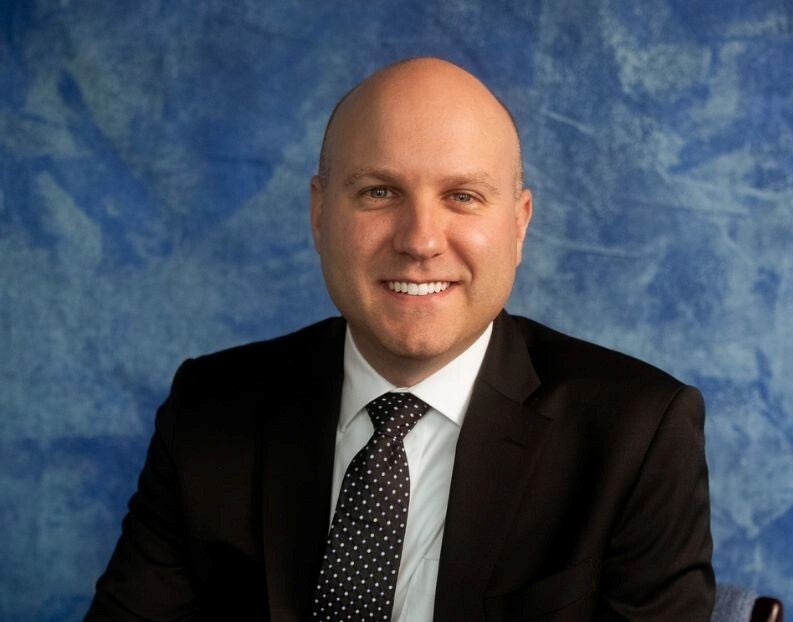
Getting vaccinated for COVID-19 and other respiratory illnesses, such as influenza and RSV, keeps emergency rooms from being overwhelmed once it gets colder outside and people spend more time indoors. RSV, or respiratory syncytial virus, causes many of the symptoms of a cold, such as a cough or fever.
“The COVID vaccination is important because it’s a proven and most effective way to prevent people from getting COVID in the first place and also making symptoms less severe,” Frazee said.
“What we’re most focused on is following what the science says and what the science says is that all of these vaccines are proven effective and they’re safe as well. And we’re going to be encouraging people to get vaccinated so that we can prevent these illnesses and mitigate them as much as we can as we head into the winter months.“
This story was supported by a statehouse coverage grant from the Corporation for Public Broadcasting.

Get daily updates from WHYY News!
WHYY is your source for fact-based, in-depth journalism and information. As a nonprofit organization, we rely on financial support from readers like you. Please give today.



